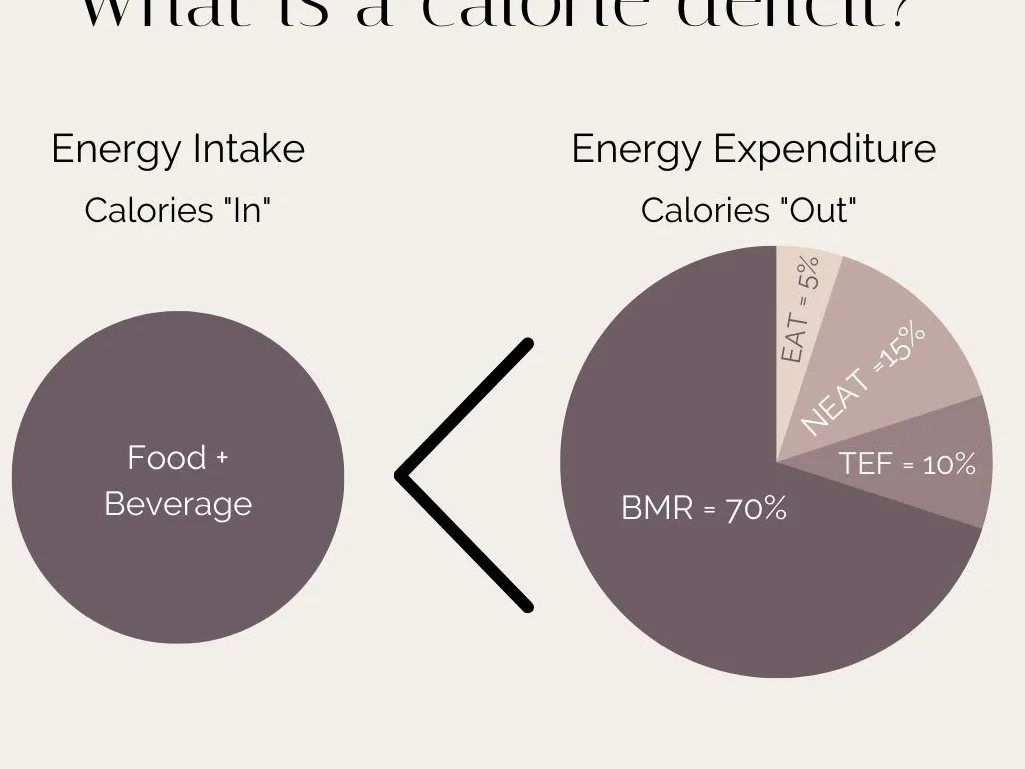When it comes to weight loss, dozens of diets claim to be the best. From keto and intermittent fasting to low-carb and juice cleanses, the options can feel overwhelming. Yet, underneath all the trends, one principle remains constant and scientifically proven: calorie deficit. No matter what type of diet you follow, creating a calorie deficit is the foundation of losing weight.
This article will break down what calorie deficit means, how it works, its benefits, potential risks, and practical tips to help you achieve it in a healthy and sustainable way.
What is Calorie Deficit and How Does Calorie Deficit Lead to Weight Loss?
A calorie deficit happens when you consume fewer calories than your body burns. In simple terms, if your body needs 2,000 calories per day to maintain its current weight and you eat 1,700 calories, you are in a 300-calorie deficit. Over time, this deficit forces your body to use stored energy (fat) for fuel, resulting in weight loss.
Calories are simply units of energy. Everything you eat or drink with nutrients contains calories, and your body burns them through basic functions (breathing, digestion, circulation) as well as physical activity (walking, exercising, even fidgeting).
Weight loss boils down to a simple equation:
Calories In – Calories Out = Energy Balance
- If Calories In = Calories Out, weight stays the same.
- If Calories In > Calories Out, excess calories are stored as fat (weight gain).
- If Calories In < Calories Out, the body uses stored fat for energy (weight loss).
For example, one pound of fat is estimated to equal roughly 3,500 calories. So, maintaining a daily 500-calorie deficit could help you lose about one pound per week.

How to Make a Healthy Calorie Deficit
- Calculate Your Calorie Needs
First, find out your Total Daily Energy Expenditure (TDEE)—the number of calories you burn daily through basic functions and activity. Online calculators can estimate this based on your age, gender, weight, height, and activity level.
- Choose a Moderate Deficit
A safe calorie deficit is usually 300–500 calories per day, leading to 0.5–1 pound of fat loss per week. Slow, steady progress is more sustainable than crash dieting.
- Prioritize Nutrient-Dense Foods
Eating fewer calories doesn’t mean eating less food—it means eating smarter. Focus on foods that are filling but lower in calories:
- Lean Proteins: Eggs, tofu, chicken breast, legumes.
- High-Fiber Foods: Vegetables, fruits, oats, whole grains.
- Healthy Fats: Nuts, seeds, avocados in moderation.
- Include Protein in Every Meal
Protein keeps you full longer, helps preserve muscle mass during weight loss, and boosts metabolism. Aim for about 0.8–1 gram of protein per pound of body weight if you’re active.
- Stay Active
Exercise not only burns calories but also builds lean muscle, which increases metabolism. A mix of strength training and cardio maximizes results.
- Track Your Intake
You don’t have to count calories forever, but tracking (with apps or food journals) helps you become more mindful of portion sizes and hidden calories.
- Be Patient and Consistent
Weight loss is not linear. Some weeks you may lose more, other weeks less. Consistency is key-stick to your deficit and trust the process.
Benefits of Calorie Deficit
- Effective Weight Loss
- Unlike fad diets that restrict certain food groups, a calorie deficit is flexible. You can eat the foods you enjoy, as long as you stay within your calorie limit.
- Supports Long-Term Results
- It’s not about quick fixes. A moderate calorie deficit encourages steady, sustainable weight loss that is easier to maintain.
- Improved Health Markers
- Losing excess body fat through a calorie deficit can reduce the risk of type 2 diabetes, heart disease, high blood pressure, and joint problems.
- Better Relationship with Food
- Instead of labeling foods as “good” or “bad,” calorie deficit focuses on balance and moderation, promoting healthier habits.
Conclusion
A calorie deficit is the golden rule of weight loss. It works regardless of diet style—keto, vegan, intermittent fasting, or balanced eating. By creating a moderate calorie deficit through mindful eating and regular activity, you can achieve healthy, sustainable fat loss.
Remember, it’s not about quick fixes but about building long-term habits. Fuel your body with nutritious foods, stay active, and be patient with the process. With consistency, calorie deficit becomes not just a method for weight loss but a lifestyle that promotes overall health and well-being